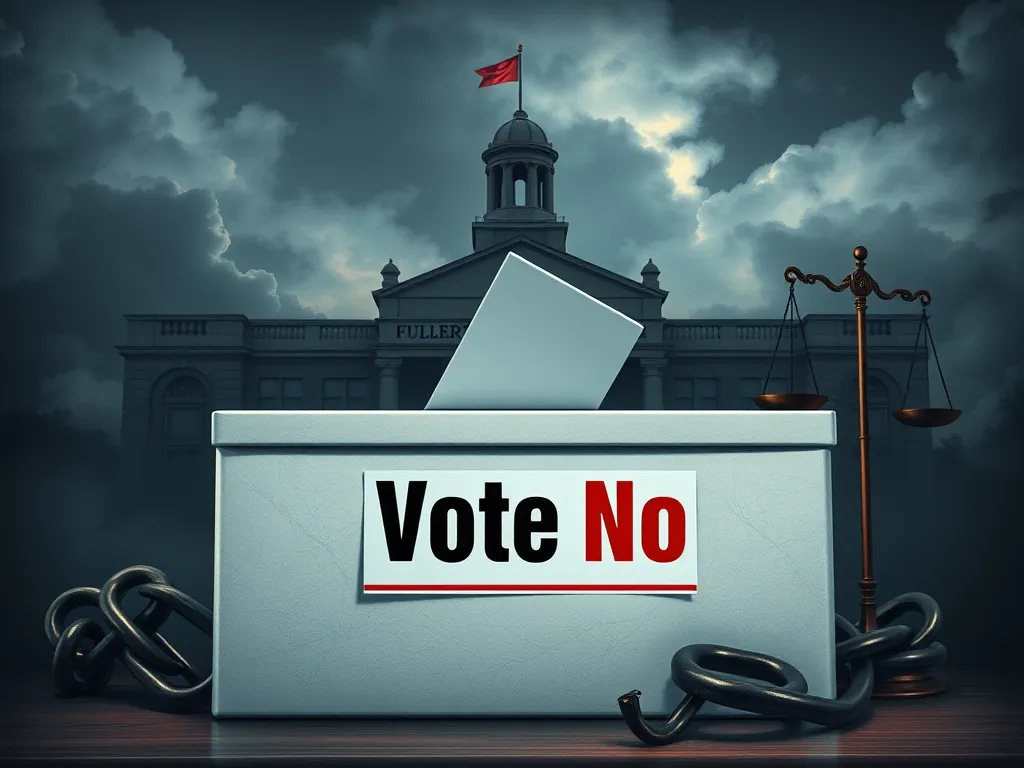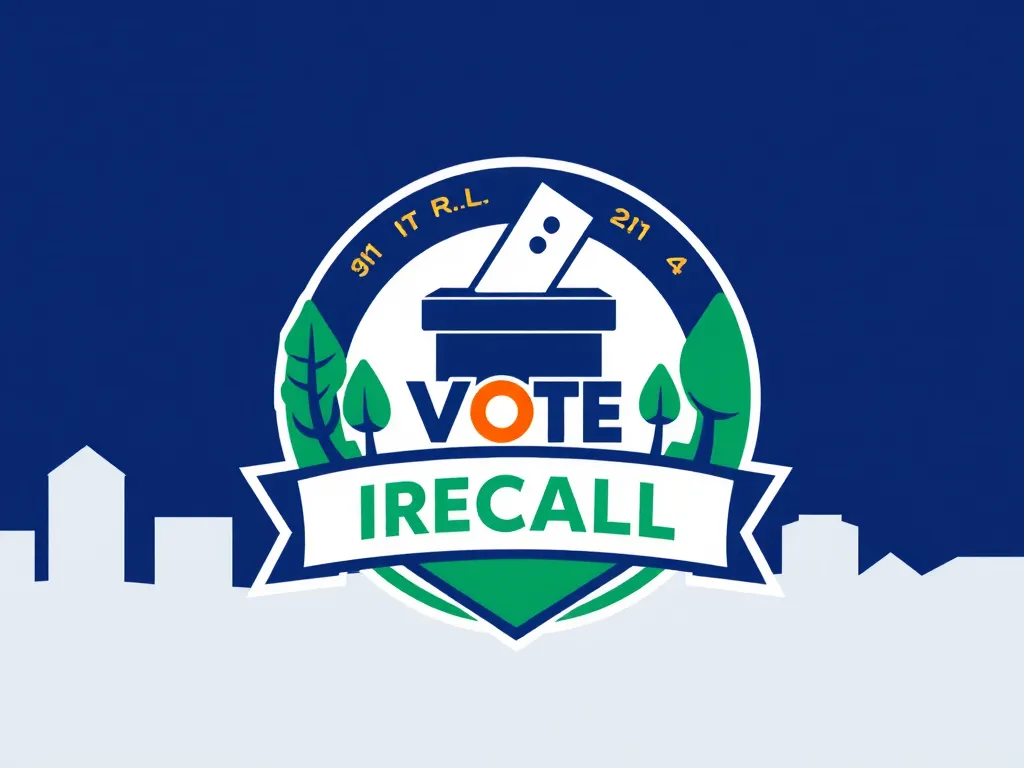Reasons to Vote No on Fullerton Recall: What You Need to Know

Vote No on Fullerton Recall: A Stand for Stability and Progress
The petition to recall elected officials in Fullerton has sparked heated debates within the community. Advocates for voting no on the Fullerton recall argue that such a move is critical for ensuring stability and continuity in local governance. As residents prepare to make a decision, it is essential to understand the implications of this recall and the rationale behind opposing it.
Voting no on the Fullerton recall is not merely a question of loyalty to current officials but a proactive stance towards the future of the city. Supporters highlight the progress made under current leadership and fear that a recall would lead to unnecessary disruptions that hinder ongoing initiatives. Thus, it is vital to analyze the broader impacts and the reasons behind supporting a no vote.
The upcoming election is not just about who remains in power; it is a reflection of community values and decision-making. Many residents believe that voting no on the Fullerton recall is vital in maintaining a government that prioritizes the needs of its constituents and operates effectively. Understanding the stakes involved will empower voters to make informed decisions at the ballot box.
In addition to the political implications, the recall process itself is expensive and resource-consuming. A focus on moving forward rather than getting entangled in recall efforts is essential for fostering an environment of growth and cooperation. Therefore, casting a vote against the Fullerton recall is seen as a vote for productive governance and local accountability.
In order to safeguard our community's future, it is crucial that residents unite to Vote No on Fullerton Recall.
As the election approaches, Fullerton residents are urged to engage in discussions surrounding the recall issue and consider the long-term effects of their choices. The stance to vote no on the Fullerton recall is, at its core, a call for thoughtful and sustainable progress for the community.
Background of the Recall
The Fullerton recall movement traces its origins to discontent with certain local policies and decisions made by elected officials. Following various controversies, a coalition of residents initiated the recall process, citing a lack of trust and accountability in government operations. This grassroots movement reflects a broader trend seen in many U.S. cities where community members seek to express their frustration through recall elections.
Key figures in the Fullerton recall effort include local activists and community leaders who have been vocal about their opposition to current city policies. On the other side, elected officials and their supporters have worked diligently to highlight their achievements and justify their positions. These contrasting narratives have fueled the discourse surrounding the recall, generating a divide among residents.
A timeline of the recall process began with the submission of signatures by proponents, followed by verification and organization of the voting process. As the election date nears, both sides ramp up efforts to galvanize supporters and sway undecided voters, leading to heightened tensions and increased public engagement.
Arguments Against the Recall
One of the most pressing arguments against the recall is its potential economic implications. The costs associated with organizing a recall election can be substantial, diverting funds that could otherwise support vital community services and programs. Voting no on the recall is viewed as a choice to prioritize fiscal responsibility and maintain budget stability.
Additionally, critics of the recall express concerns about the impact on local governance. A recall could lead to frequent changes in leadership, undermining continuity and creating an environment of uncertainty. This instability may negatively affect the ability to implement long-term policies that benefit the community at large; hence, many see voting no as a crucial step towards fostering effective governance.
The community's response has been varied, with a significant portion of residents advocating against the recall. Grassroots activism has emphasized the importance of unity and constructive dialogue rather than division. This spirit of cooperation is vital for maintaining social harmony and advancing shared goals, making a no vote a strategic decision for the community's future.
Voting Process and Logistics
Residents who wish to vote against the recall must ensure they are registered to participate in the election. Engaging with local voter registration drives and checking registration status is crucial for making their voices heard. Voting no on the Fullerton recall represents an opportunity to shape the community's future actively.
Several voting methods are available to residents, including mail-in ballots, early voting, and in-person voting on election day. Understanding the logistics of each process will enable residents to make informed choices about how to cast their votes against the recall and ensure their participation is counted.
Voters should pay attention to important deadlines related to registration, ballot requests, and voting. Being aware of these key dates is crucial for ensuring that everyone can have a say in the upcoming election and can exercise their right to vote no on the Fullerton recall effectively.
Community Impact of Recall vs. No Recall
If the recall were to succeed, significant changes in city policy could ensue, potentially disrupting projects and initiatives already in motion. Residents risk losing momentum on important community programs that align with local values and needs, reinforcing the argument for voting no to maintain existing policies that have shown positive results.
Long-term effects on community services could be detrimental if new leadership were to focus on different priorities. A vote against the recall is seen as a commitment to uphold the services currently benefiting residents, ensuring that community needs remain at the forefront of local governance.
Public opinion on the recall has shown polarization, with surveys indicating varying levels of support and opposition among residents. Engaging with and understanding public sentiment is vital for fostering a sense of community and empowering citizens to advocate for what they believe is best for the city, further supporting the need to vote no on the recall.
Campaigns and Advocacy
Several organizations and community groups have emerged to support a no vote on the recall. These groups work to raise awareness of the implications of the recall and encourage resident participation in the electoral process. By mobilizing support, they contribute to a well-informed electorate that prioritizes stability and governance.
Strategies for grassroots campaigning have included door-to-door outreach, town hall meetings, and informational sessions aimed at educating citizens about the recall process. Engaging the community in discussions promotes an understanding of critical issues, encouraging voters to consider the broader implications of their choices.
The role of social media in the recall election cannot be underestimated. Digital platforms have been utilized to spread awareness, organize events, and engage voters effectively. Leveraging social media for advocacy adds a modern dimension to campaign efforts, making it easier to rally support against the recall and ensure that the message reaches a wider audience.
